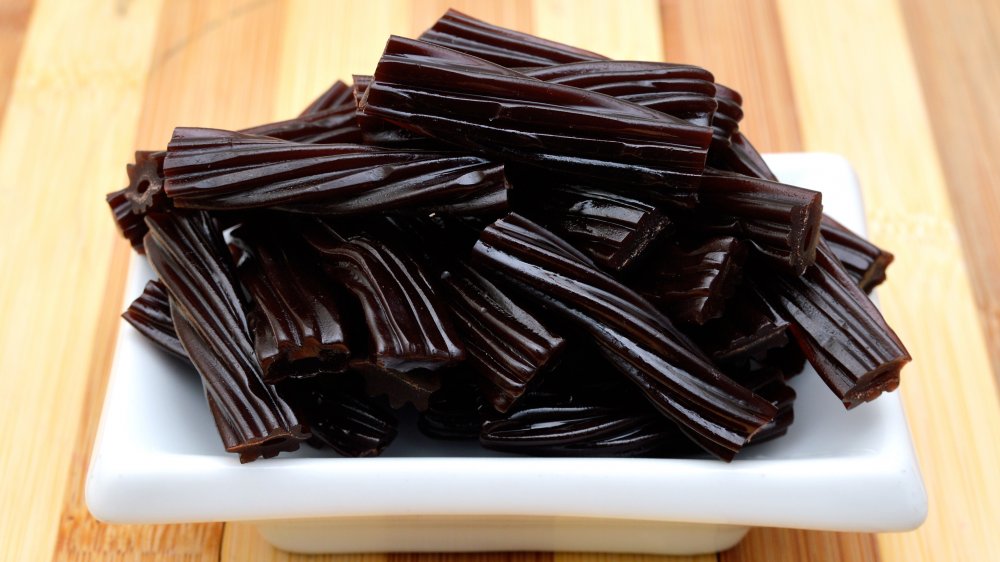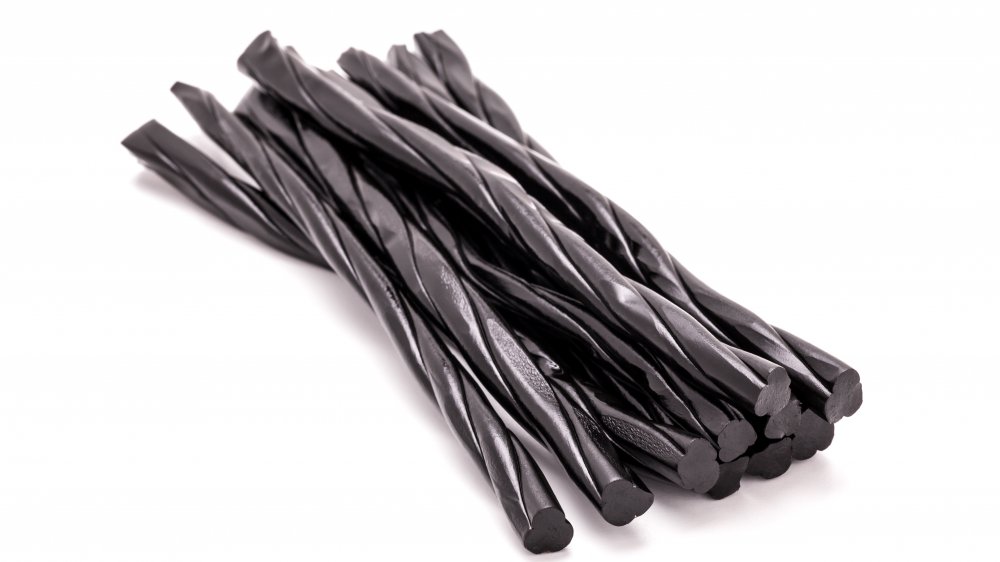This Is Where The Flavor Of Black Licorice Comes From
For many of us, black licorice tastes like the medicine NyQuil or the liquor Jagermeister, making us cringe even thinking about it as a treat. However, there are some who truly enjoy the candy's distinctive flavor. A researcher who works at the Monell Chemical Senses Center in Philadelphia, Marcia Pelchat, told NBC that people seem to either love black licorice or hate it right when they try it. "I don't know a specific gene that is associated with liking and disliking licorice," Pelchat said. "[But] it does seem to be something that people are born with."
According to the FDA, it's not a good idea to eat a lot of this candy because you can actually overdose on the stuff. Yes, you read that right. If you're 40 or older and eat two ounces of black licorice a day for at least two weeks you could end up in the hospital. Eating the old fashioned treat has been linked to an irregular heart rhythm and arrhythmia. So what exactly is in black licorice that makes it so polarizing and potentially dangerous?
Here's what gives black licorice its unique taste and smell
HuffPost spoke to the Food Program Coordinator for the Department of Nutrition, Food Studies, and Public Health at New York University, Kelila Jaffe, to find out where licorice comes from. Jaffe explained that licorice has been around for thousands of years and is native to Southern Europe and Asia. "Licorice is a plant, Glycyrrhiza glabra," she told the publication. "But the term also refers to the confections derived from that plant's sweet roots (black licorice). Other candies of similar form use the name as well, but are not actually flavored with licorice extract."
For those of us who much prefer eating the red kind, apparently that's actually the fake version of licorice. "Black licorice candy is flavored with the extract of the licorice plant," Jaffe revealed. "Red licorice, or other colors, are usually fruit flavored by artificial or natural means, and do not contain licorice flavoring." She added that fan favorites like Red Vines and Twizzlers don't even claim to be licorice at all, but are instead labeled "twists" — though their black licorice flavors do contain licorice extract. So it turns out if you don't like black licorice, you don't like the taste or smell of the actual plant; which is fine with us, we'll still happily enjoy red "licorice" during our next movie night.

